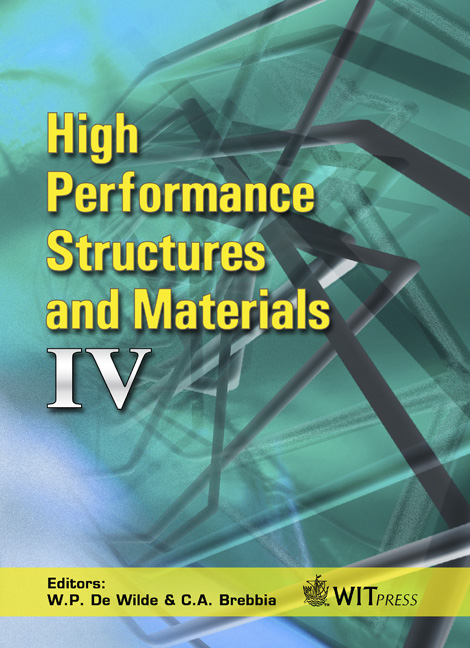Improvement In The Mechanical Properties Of Light Curing Epoxy Resin With MFC (Micro-Fibrillated Cellulose)
Price
Free (open access)
Transaction
Volume
97
Pages
10
Page Range
139 - 148
Published
2008
Size
1,141 kb
Paper DOI
10.2495/HPSM080151
Copyright
WIT Press
Author(s)
Y. Ohnishi, T. Fujii & K. Okubo
Abstract
This study shows an effective method to reinforce light curing epoxy resin with MFC (Micro-Fibrillated Cellulose) extracted from wood pulp. MFC is strongly hydrophilic and it is kept with water. Therefore, absorbed water in MFC was removed by two procedures (treatments): (1) freeze-drying and (2) substituting the water in MFC with ethanol. Absorbed water needs to be removed in order to reinforce the light curing resin with MFC because included water degrades the properties of the resin. The variation in the mechanical properties according to the type of treatment was examined after the composites were fabricated with the treated MFC. Debonding between MFC and the resin was observed in the freezedried MFC composite. On the other hand, breakage of MFC was observed in the ethanol-treated MFC composite. In order to evaluate the interfacial adhesion between MFC and the resin, the interfacial shear strength was defined by measuring the critical fiber length. When MFC was treated with ethanol, the interfacial shear strength between MFC and the resin increased 2.7 times as high as that of the freeze-dried MFC composite. In the SEM observation of the fracture surface of the ethanol-treated MFC composite, fiber bridging of MFC was observed. Fiber bridging prevented the crack propagation in the ethanoltreated MFC composite, and the energy absorption was improved by 58% in comparison with that of the pure resin. Keywords: MFC (Micro-Fibrillated Cellulose), composite, fiber bridging, energy absorption, ethanol treatment, nanocomposite, light curing epoxy resin.
Keywords
MFC (Micro-Fibrillated Cellulose), composite, fiber bridging, energy absorption, ethanol treatment, nanocomposite, light curing epoxy resin.





